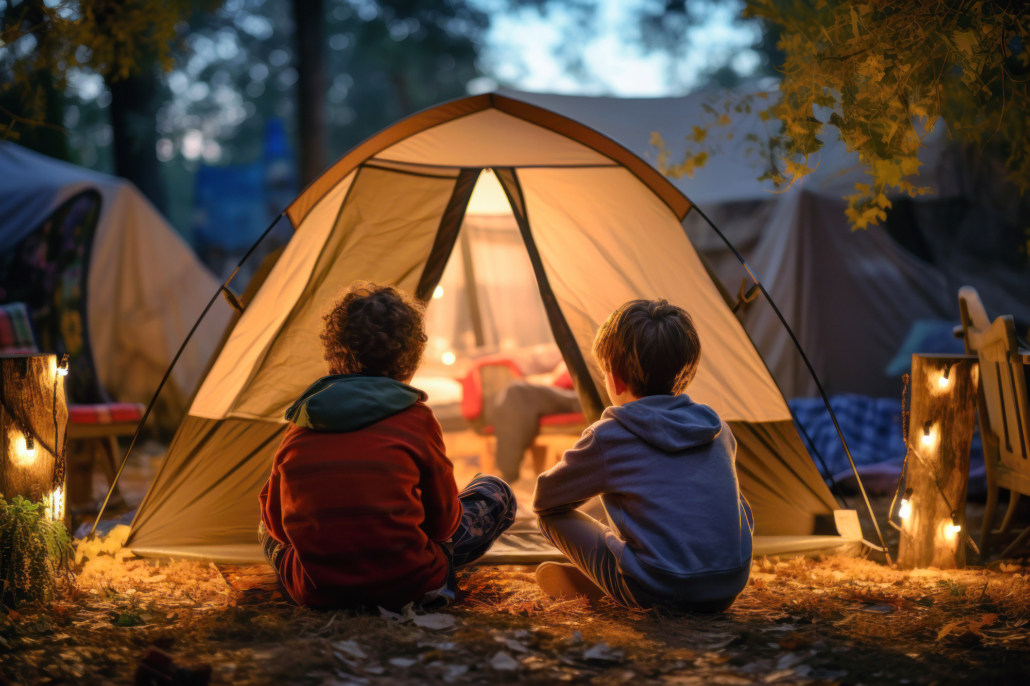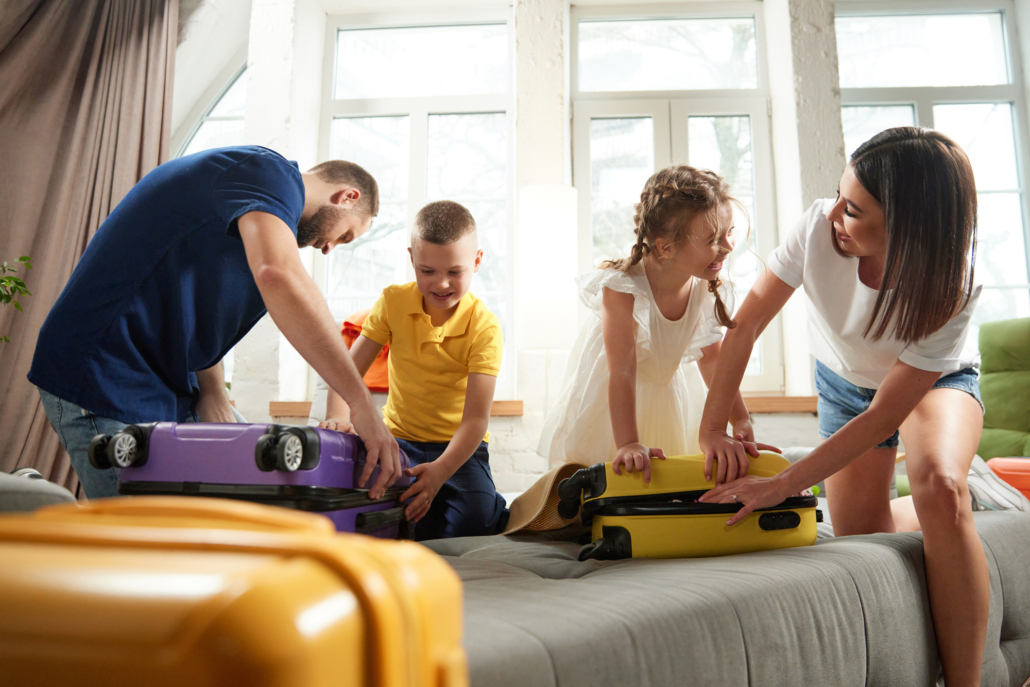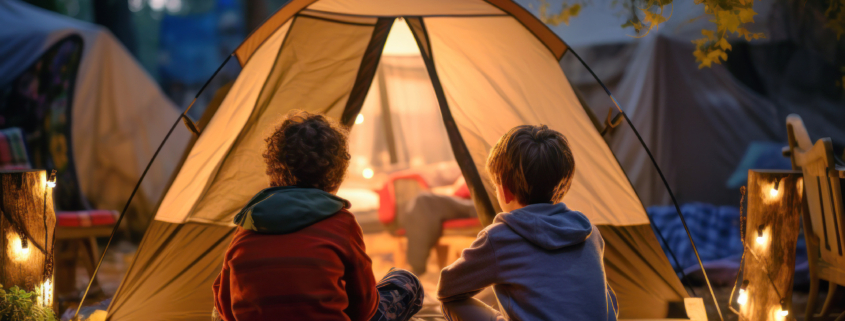How To Prep Your Child For Their First Summer Camp Experience
 Sending a child to summer camp for the first time is an exciting milestone for parents and children. It marks a period of growth, independence and adventure. However, this new journey can also be fraught with apprehension and uncertainty. Preparing your child for their first summer camp experience requires thoughtful consideration, communication, and planning. By taking proactive steps, parents can ensure their child embarks on this new adventure feeling confident, supported, and ready to enjoy all that summer camp offers.
Sending a child to summer camp for the first time is an exciting milestone for parents and children. It marks a period of growth, independence and adventure. However, this new journey can also be fraught with apprehension and uncertainty. Preparing your child for their first summer camp experience requires thoughtful consideration, communication, and planning. By taking proactive steps, parents can ensure their child embarks on this new adventure feeling confident, supported, and ready to enjoy all that summer camp offers.
-
Understanding the Benefits of Summer Camp
Summer camp offers a unique environment where children can develop various skills. They learn to navigate social dynamics, gain independence, explore new interests, and build resilience. Beyond the fun and games, these experiences are crucial for personal development and can impact a child’s confidence and self-esteem.
-
Choosing the Right Camp
Before diving into preparation, selecting the right camp is crucial. Consider your child’s interests, personality, and readiness for overnight stays if considering a sleep-away camp. Some children thrive in structured environments, while others benefit from more open, exploratory settings. Additionally, vacation care for school holidays, which may include day camp, provides a great introduction to the camp experience without the commitment of overnight stays. These programs offer structured activities, outdoor adventures, and the chance to meet new friends, serving as an excellent transition to more extended camp experiences.
-
Preparing Your Child Emotionally
Open communication is key to preparing your child for their first summer camp experience. Discuss what camp will be like, focusing on the positive aspects but also acknowledging any fears or concerns they may have. Children need to know that feeling nervous is normal and that everyone at camp is there to have fun and make friends.
- Setting Expectations: Discuss the daily schedule, types of activities available, and the importance of trying new things. Emphasize the opportunities to learn new skills and the fun of participating in group activities. Setting realistic expectations helps mitigate anxiety and builds excitement.
- Encouraging Independence: Camp is a fantastic opportunity for children to grow more independent. You can foster this at home by encouraging them to choose and take on responsibilities suitable for their age. Practice skills they’ll need at camp, like tidying up, choosing their clothes, and personal hygiene routines.

-
Packing Together
Involving your child in packing helps them feel more prepared and in control. Create a packing list based on the camp’s recommendations, and let your child pick out items they’re excited to bring, such as a favorite t-shirt or a comforting stuffed animal for younger children.
- Label Everything: Make sure all items are labelled with your child’s name. This helps them keep track of their belongings and teaches them to be responsible for their items.
-
Visiting the Camp Ahead of Time
Visit the camp with your child before their session starts. Familiarizing themselves with the environment can significantly reduce anxiety. They can see where they’ll sleep, eat, and play, making the camp less intimidating.
-
Building Social Skills
Camp is a social experience. You can help your child prepare by arranging playdates with a variety of peers or engaging in group activities to practice social skills. Discussing scenarios they might encounter and role-playing responses can also boost their confidence in making new friends.
-
Managing Homesickness
Homesickness is common, especially for first timers. Talk about it openly and strategize coping methods, such as writing letters home or bringing familiar items to comfort. Assure them it’s okay to miss home and that camp staff are there to help them feel better.
-
Establishing Communication Rules
Understand the camp’s policies on communication. Some camps may allow letters and emails, while others may have specific times for phone calls. Discuss with your child how often and through what means you’ll communicate. This clarity can ease concerns about being away from home.
-
Health and Safety Precautions
Ensure all medical forms are filled out accurately and discuss concerns with camp staff beforehand. Teach your child basic health and safety practices, such as hygiene habits, staying hydrated, and applying sunscreen. Knowing how to care for themselves can make them feel more secure and independent.
-
Encouraging a Positive Mindset
Instilling a positive mindset in your child before they head off to camp is essential. Talk about the opportunities ahead, focusing on the fun aspects and the chance to make lasting memories. Share stories of your own positive experiences of independence or listen to experiences from others who have enjoyed summer camp. This can help build excitement and reduce any lingering fears.
- Problem-Solving Skills: Equip your child with basic problem-solving skills before they depart. Discuss potential scenarios they might encounter, such as disagreeing with a friend or losing an item, and brainstorm solutions together. This prepares them for camp challenges and boosts their confidence in handling situations independently.
The Night Before Camp
The evening before camp is a crucial time for setting a positive tone. Pack any last-minute items together and share a special meal or activity to celebrate this new adventure. Reassure your child of the wonderful experiences awaiting them and the new friends they’ll make.
Final Thoughts
Sending a child to summer camp is a significant step in their journey toward independence and self-discovery. By carefully preparing your child for this experience, you can help ensure they have a positive, enriching time at camp. Remember, the goal is for them to return home with newfound confidence, cherished memories, and perhaps some campfire smoke in their clothes.

Leave a Reply
Want to join the discussion?Feel free to contribute!